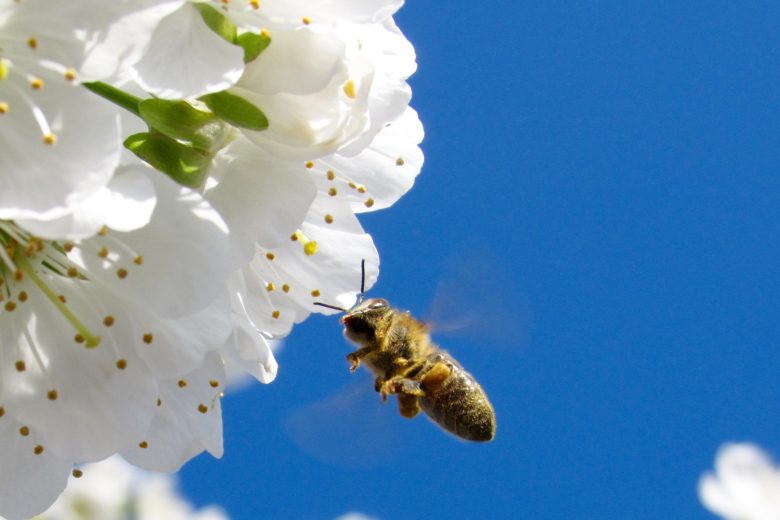Our first year as beekeepers in Western KY offered many learning opportunities. Yesterday marked the first day of the beekeeping season for us, and we haven’t stopped buzzing with excitement since.
As with much in life, the first year is always the hardest– and this is no different for bee colonies and their keepers. Every “newbee” has much to learn, and here is what the bees have taught me:
1. “No matter what, no matter where, it’s only home if your honey’s there.”
Real estate– “location, location, location”– is everything for bees. OK, maybe not everything….I’ve seen hives thrive in abandoned garbage cans and in rotten telephone poles. The fact one of our hives didn’t think their placement in dappled sunlight along a creek bank was the bees knees has led us to believe that direct sunlight is the optimum location for establishing a new colony. Long story and multiple struggles aside, the bees are amazing little survivors. They don’t (or can’t!) put up with a home not suitable for them. They pack up and head out for somewhere that is better suited if the beekeeper doesn’t to take a hint or two.
2. “It’s a purpose driven life.”
Every bee in the colony has a job, and throughout the life of a worker bee that job changes. New worker bees hatch and clean their cells from which they emerged in preparation for new eggs. The worker bee’s first job as a nurse will be to care for the eggs, pupae, and larvae. After caring for the young, the bees then switch to a sort of undertaker. Dead bees laying around in a hive would be unsanitary and set the stage for disease, so they must be removed promptly. By now, the worker bee’s wax glands have matured and she may become an architect of the hive and build the complex and beautiful wax. Then that same bee is put on duty to either remove the pollen from her incoming sisters to store in the cells, or to be put on the “honey line.” Bees on honey duty excrete a digestive enzyme mixed with the pollen/nectar and fan it rapidly with their wings to make the sweet, sticky good stuff. The next stage in life for the worker bee is to finally step out of the protection of the hive and begin the dangerous roll of foraging. These are the bees we see flying about collecting pollen and nectar for the hive, risking pesticide and predator. If she survives her role as forager, she will then return to the hive and finish her life as a guard bee. By now, her stinger is fully developed and she guards against intruders and acts as gatekeeper.
Other bees in the hives are the drones (male bees–their only job is to mate with the queen), the queen (responsible for the order and vitality of the hive), and her attendants (about a dozen or so prestigious worker bees).
Every role is necessary. Every bee has a purpose. Sometimes those roles change, but everyone works for the betterment of the hive.
3. “If you mess with one, you mess with the whole bunch.”
Self explanatory, right? When the top comes off of a hive, essentially a giant just ripped off the top of their hard-earned home. With power in numbers (there are up to 100,000 bees in one hive at the peak of summer!) and mob-mentality, who wouldn’t get a little brave?
4. “Stop and smell the flowers.”
For 1-pound of honey to be produced, bees must tap approximately 2 million flowers. Each worker bee only produces about 1/12 of a teaspoon in its life.
5. “Sacrifice is the greatest form of love.”
Saint John Chrysostom once stated: “The bee is more honored than other animals, not because she labors, but because she labors for others.”
People benefit so much from the little bee. Specifically, the honeybees pollinate about every third bite of food we eat. Approximately 80% of the food in a grocery store has some link to the honeybee and her pollinating services. And let’s not forget the other products derived from the bee’s wax, propolis, and royal jelly.
In this Easter season, we are still reflecting on Christ’s suffering, His passion, His glorious resurrection. I’m reminded that our hope comes from He who sacrificed it all. In John 15:13, we are reminded, “Greater love has no man than this, that a man lay down his life for his friends.”
May each honeybee you see this Spring bring you sweet reminders of His Word and His promise– you are so loved.
Sweet blessings,
Neena
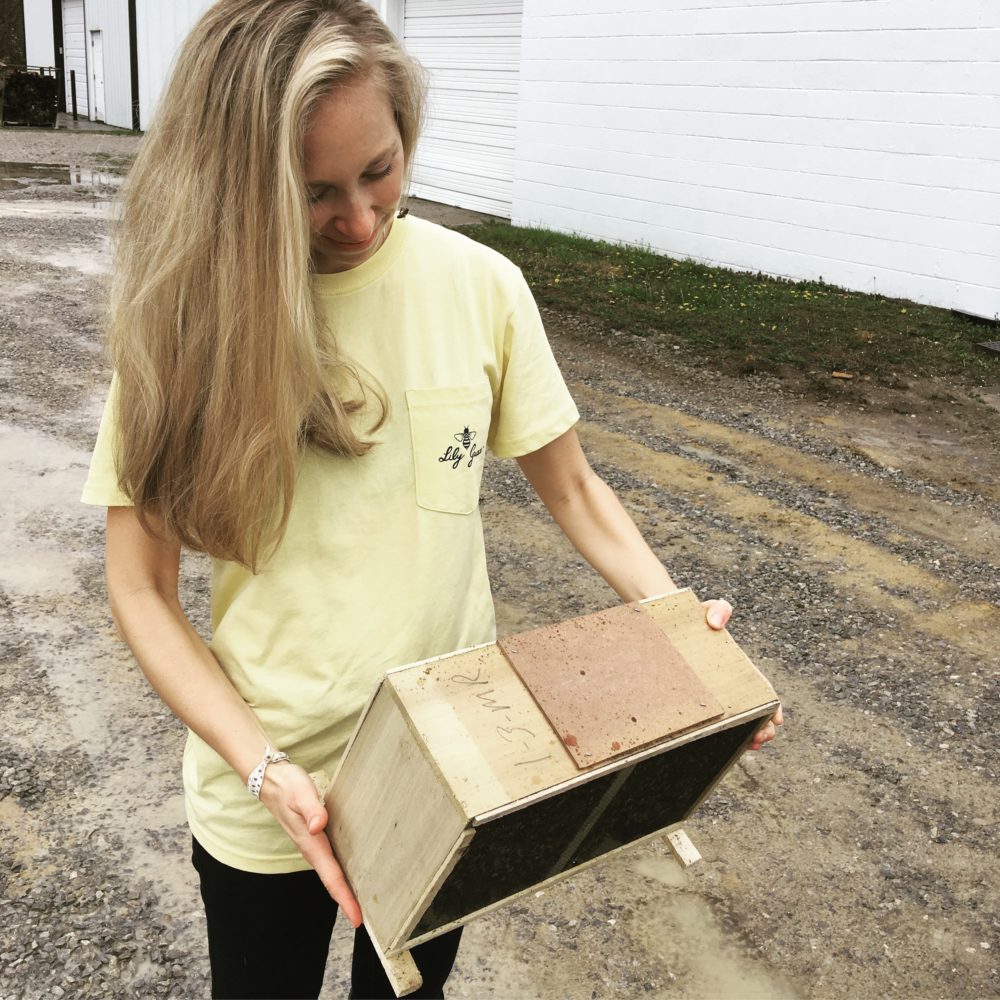
Picking up a package of bees!
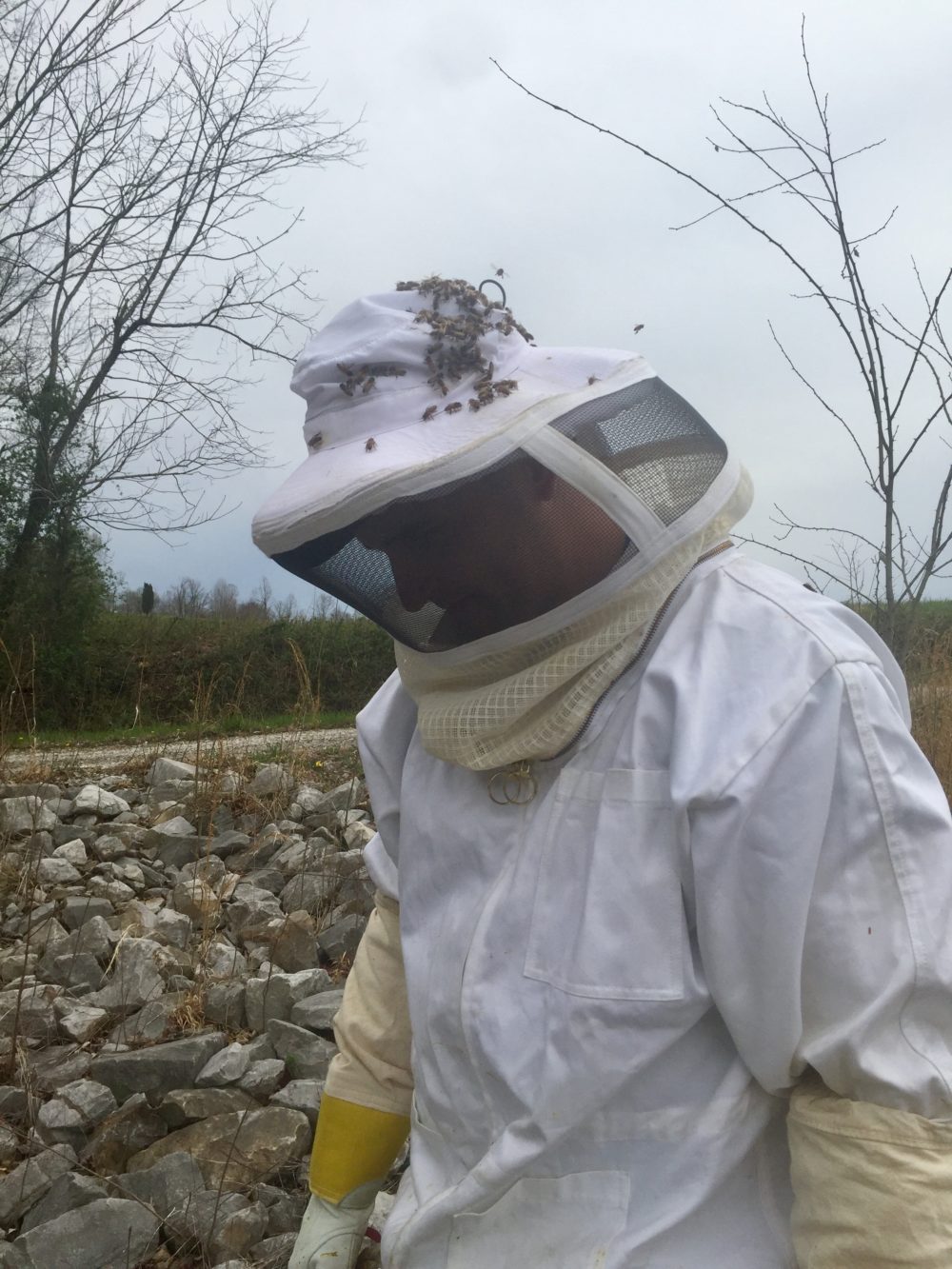
The bees love him 😉
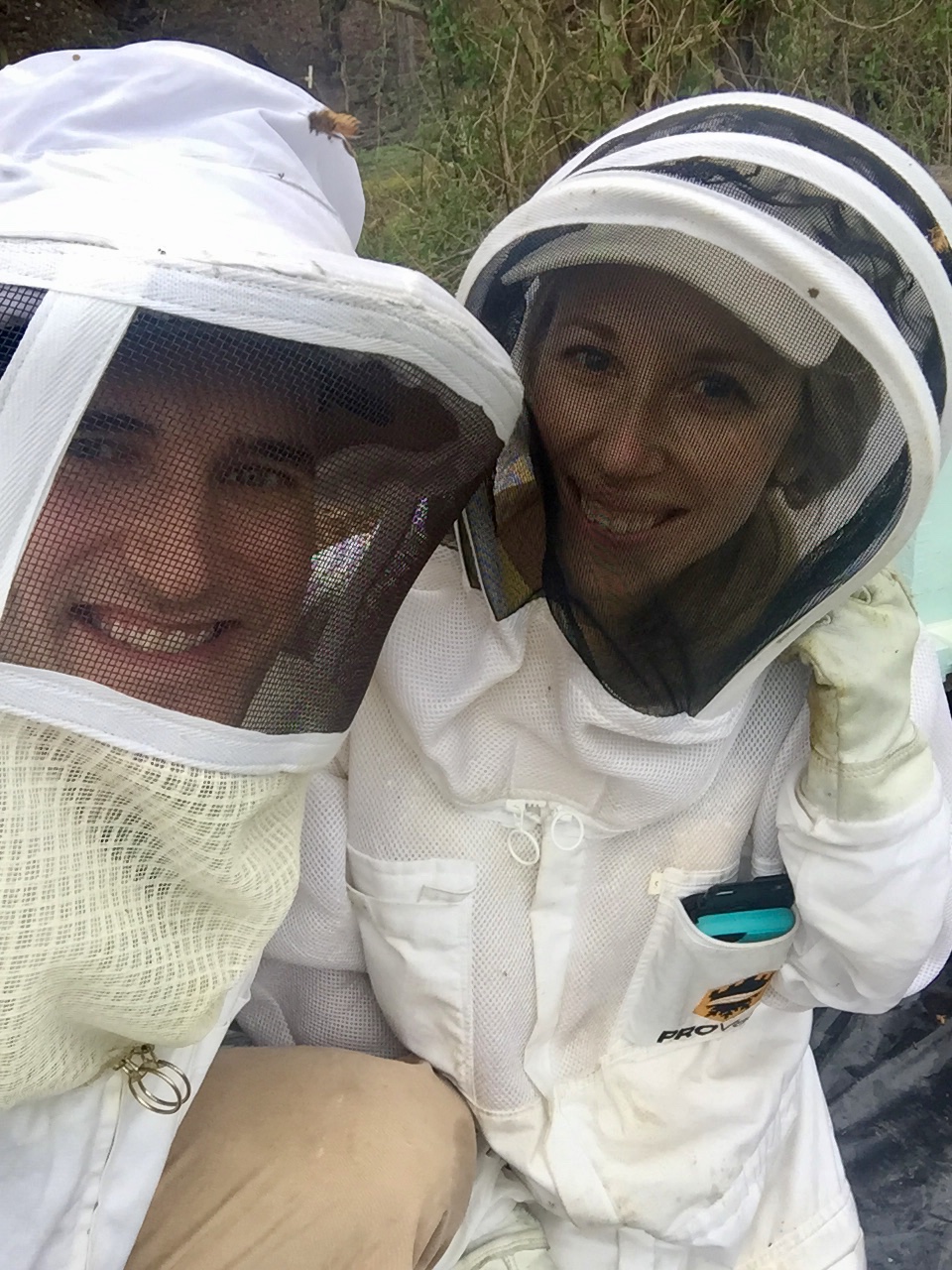
I do too 🙂
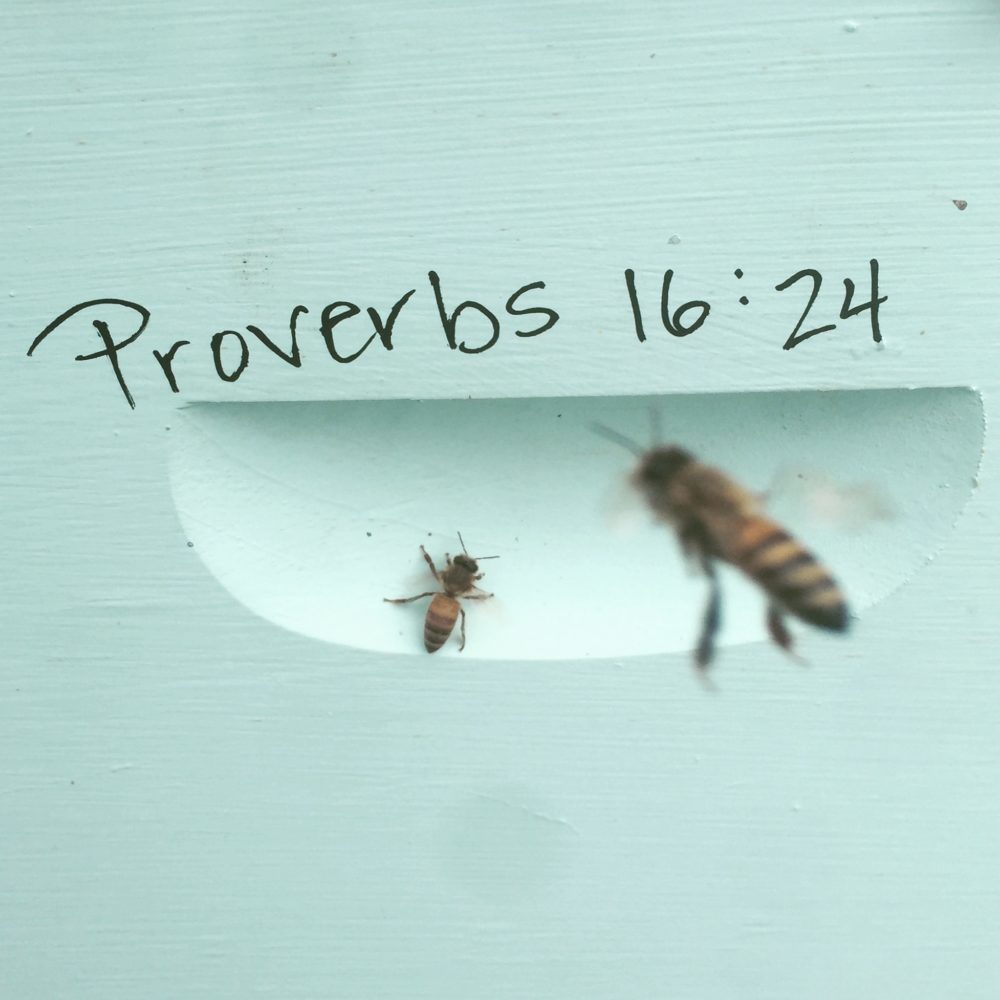
*Featured image by Anthony Rossbach on Unsplash
